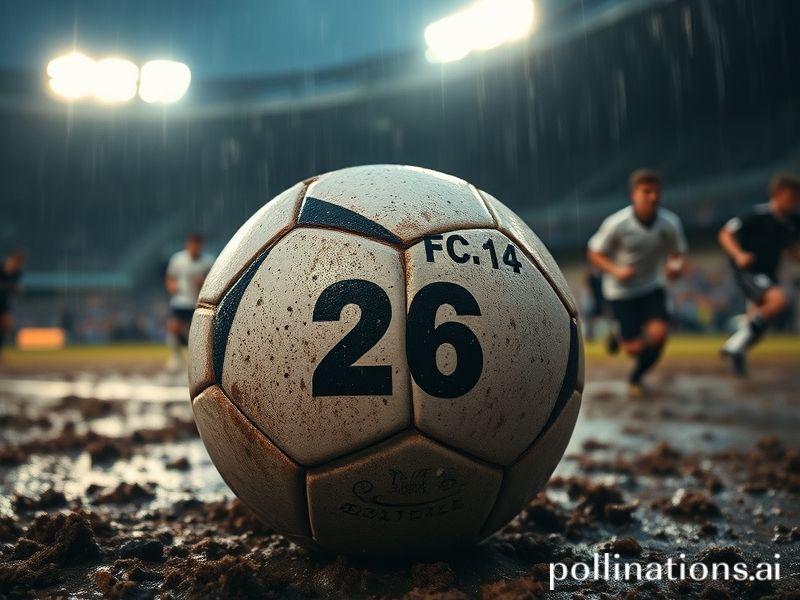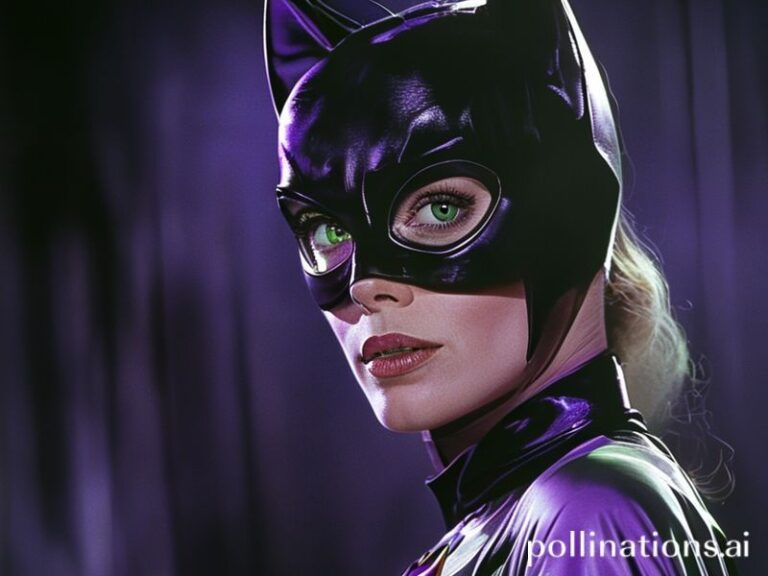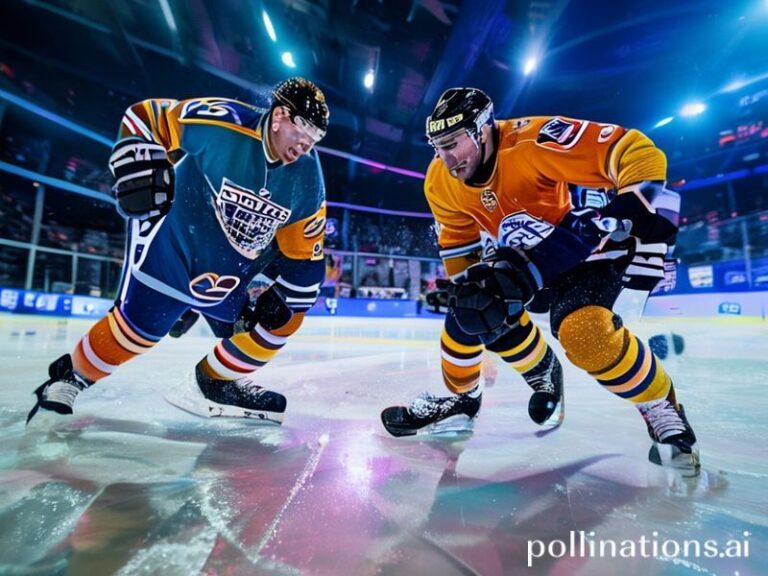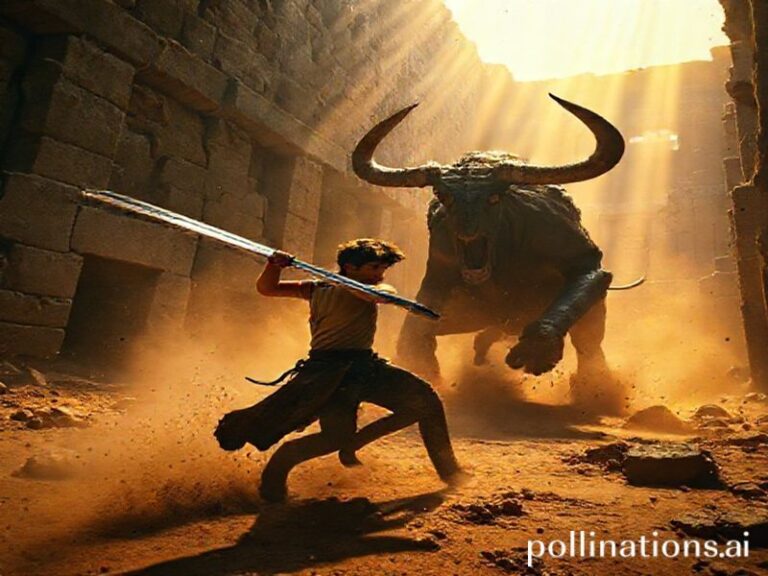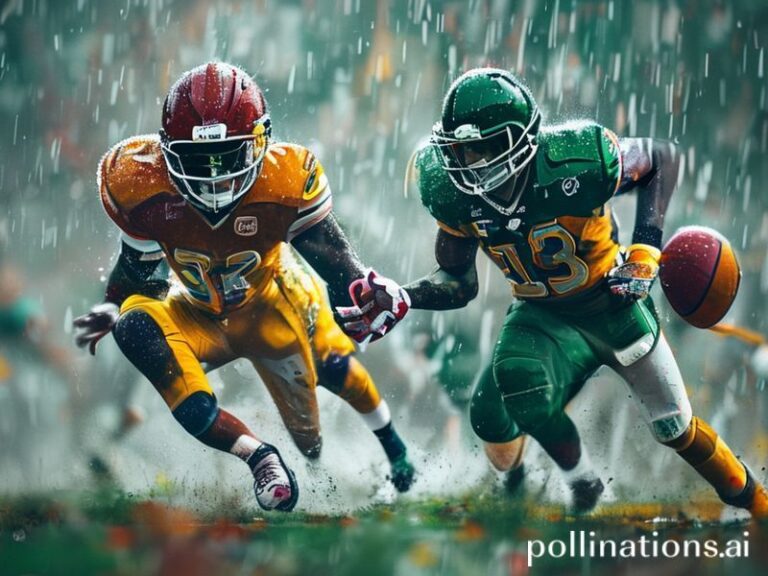fc 26
FC 26: The World’s Newest Shared Delusion
By Dave’s Foreign Correspondent-at-Large (currently self-medicating in three time zones)
They say football is the universal language; if so, FC 26 is the latest dialect everyone suddenly claims to be fluent in. From smoke-choked cyber-cafés in Lagos to glassy fintech lounges in Singapore, the initials are being dropped like insider passcodes. For the uninitiated, FC 26 is Electronic Arts’ freshly lacquered installment of the FIFA-less franchise formerly known to every twelve-year-old deity of the living-room sofa as “the only reason I tolerate family dinners.” The game no longer dares speak the F-word after the world’s most rapacious sports body demanded more tribute than a Central Asian dictator’s birthday party, so we’re stuck with the corporate shrug of “EA Sports FC.” Edition 26—counting back to the prehistoric days when a Ronaldinho cover still felt optimistic—arrives just in time for a planet that can’t afford real footballs because they’re made of, well, planet.
Global Context, or How to Sell Microtransactions to a Recession
Europe is freezing its grandparents to sanction an energy-rich neighbor; South America is exporting soy and coaches in equal measure; and North America is still pretending it prefers baseball. Into this cheerful tableau EA parachutes FC 26 with fresh leagues in Saudi Arabia and India, because nothing says “authentic football culture” quite like purchasing Cristiano Ronaldo in Riyadh for more petrodollars than the GDP of Iceland. The Indian Super League’s pixelated inclusion is marketed as “bringing the beautiful game to 1.4 billion hearts,” which translates roughly to “untapped in-app purchase market.” Meanwhile, Africans who actually grow up juggling plastic bags into spheres must watch their local stadiums crumble while EA scans Bukayo Saka’s eyebrows down to the follicle.
Worldwide Implications, aka 50 Gigabytes of Existential Dread
Download size is now so bloated that in parts of rural Brazil the patch alone costs more bandwidth than a month of Zoom classes. Yet the game’s servers hum from Dublin to Dubai, powered—let’s not kid ourselves—by the same coal plants dooming the Maldives. Climate negotiators in Bonn might as well hold their next summit inside Ultimate Team: at least there the loot boxes are honest about being rigged.
The geopolitics of cover stars is equally fraught. Kylian Mbappé graced the last two editions; this year EA hedged bets with a triumvirate of Jude Bellingham, Aitana Bonmatí, and, because the algorithm demanded a wild card, Erling Haaland’s cyborg grin. Notice the careful tri-continental balance: a European man, a European woman, and a Nordic demigod who looks like he eats reindeer protein for breakfast. Diversity consultants everywhere sigh in relief, stock photos of mixed kids high-five in the cloud.
Broader Significance, or Why We Keep Buying the Same Penalty Animation
Humanity has now spent two solid decades purchasing the same game annually, a ritual that makes Apple’s product cycle look like Amish craftsmanship. Every September we queue, digital or otherwise, to fork over $70 plus another $200 in Ultimate Team packs whose odds are disclosed in four-point font. Psychologists call this intermittent reinforcement; the rest of us call it Tuesday. The UN could probably fund drought relief if EA taxed FIFA Points at a moral rate, but then how would middle managers in Warsaw feel the dopamine hit of packing a turquoise Erling?
Still, FC 26 does stitch together a fractured species. Somewhere right now a kid in Lagos is trash-talking a banker in Zurich via headset, both united in the belief that virtual Robert Lewandowski is somehow overpriced. The game translates rage into a common tongue; it outsources tribalism to pixels so the real world can pretend to behave. We may not agree on carbon budgets, but we all agree the referee is clearly blind.
Conclusion, Because Even Irony Has Word Limits
EA Sports FC 26 is less a football simulation than a planetary mood ring: it reflects who we are—cash-hungry, nostalgia-drunk, and distractible—while promising us the illusion of control. In that sense, it is the perfect product for 2024: a high-definition escape hatch priced just below therapy. The world burns, economies wobble, but somewhere a teenager in Jakarta scores a bicycle kick and believes, for 2.7 seconds, that everything is possible. Then the server lags, the moment freezes, and reality buffers back in. Game on, Earth.

